MercoPress. South Atlantic News Agency
Tag: Sasha Arkhipkin
-
Saturday, May 12th 2018 - 13:29 UTC
Catches Variable but Falkland Islands Fishing Season Progressing Well
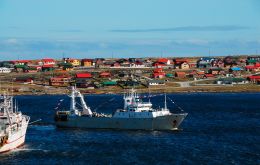
Earlier this week Mercopress announced that a delegation from the Falkland Islands will be joining the UK Foreign and Commonwealth Office in Argentina next week to discuss fisheries data exchange. This announcement comes shortly after a successful visit to the Brussels Seafood Show, where the important access of continued market access post-Brexit was discussed with partners by Falkland Islands fishing companies.
-
Wednesday, April 4th 2018 - 08:52 UTC
Falklands' Loligo squid “doing well” in first month of the fishery

Twenty thousand tons of Loligo squid have been caught during the first month of the fishery, so it is “doing well,” the Falkland Islands Senior Fisheries Scientist Sasha Arkhipkin confirmed to Penguin News during the last week of March.
-
Monday, January 22nd 2018 - 09:44 UTC
Falkland Islands geography a trap for pilot whales (*)

Sasha Arkhipkin, Senior Fisheries Scientist talks about mass strandings of pilot whales.
-
Friday, October 6th 2017 - 20:21 UTC
Falklands shares concerns on high seas catches as a challenge to stock assessment

Fishing on the high seas (*) can present a serious problem for fisheries management, but the Falkland Islands Senior Fisheries Scientist Alexander (Sasha) Arkhipkin has been making a heavy contribution to international collaborations to attempt to deal with some of that impact.
-
Friday, August 11th 2017 - 07:57 UTC
Falklands' second Loligo season very promising but by-catch of fur seals forces an exclusion zone
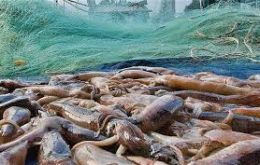
The Falkland Islands second Loligo squid season has taken with very good catches, but good catches also means abundance of the cephalopodus, and... of those sea mammals that feed on them. Because of this a temporary exclusion zone around Beauchene Island was put in place on Thursday making this productive area for Loligo squid out of bounds to fishing vessels.
-
Friday, March 3rd 2017 - 09:51 UTC
Falklands celebrates in an Open Day the 30th anniversary of the Fishery
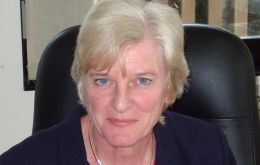
Around 360 Falklands residents visited the floating dock FIPASS on Saturday 25th February as part of Fish Day – celebrating 30 years of the Falkland Islands Fishery. The Falkland Islands Fishing Association (FIFCA) Executive Secretary Jackie Cotter told Penguin News the day went very well and its aim, as well as celebrating the anniversary, was to give a general overview both of the fishery and the Falklands Government Fisheries Department.
-
Saturday, November 5th 2016 - 09:10 UTC
Why Falklands' conservation and management zone is so productive
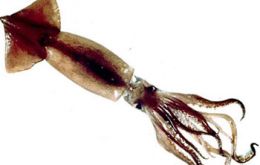
Three decades ago, on 29 October 1986 a Proclamation declaring the Interim Falklands Conservation and Management Zone was signed by then Governor Jewkes, which helped to transform the Islands economy. The anniversary has been marked by several events, and this week was the turn for a scientific approach on how and why the waters around the Falklands are so rich in marine life.
-
Tuesday, April 19th 2016 - 00:31 UTC
Falklands reports poor catches of squid; reimbursement of licenses to be considered in June
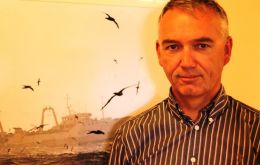
Falkland Islands authorities have confirmed that Illex squid capture has been particularly low this fishing season, a situation that could lead the Islands government to reimburse part of the license fees paid to catch cephalopods.
-
Tuesday, February 23rd 2016 - 07:07 UTC
Falklands with “no big concentrations of Illex” this season, which is “worrying”

Early indications from scientific surveys are showing “no big concentrations of Illex,” in the Falkland Islands waters or on the high seas, “which is worrying,” said Falkland Islands Government Senior Fisheries Scientist Sasha Arkhipkin as reported by the Penguin News.
-
Thursday, December 18th 2014 - 02:34 UTC
South Atlantic: “Fewer catches as illex squid season ends”

The Argentine jigging fleet captured nearly 150,000 tonnes of squid (Illex argentinus) in South Atlantic waters during the season that took place between 24 January and 31 August this year, according to a technical report issued by the National Institute for Fishing Research and Development (INIDEP).
